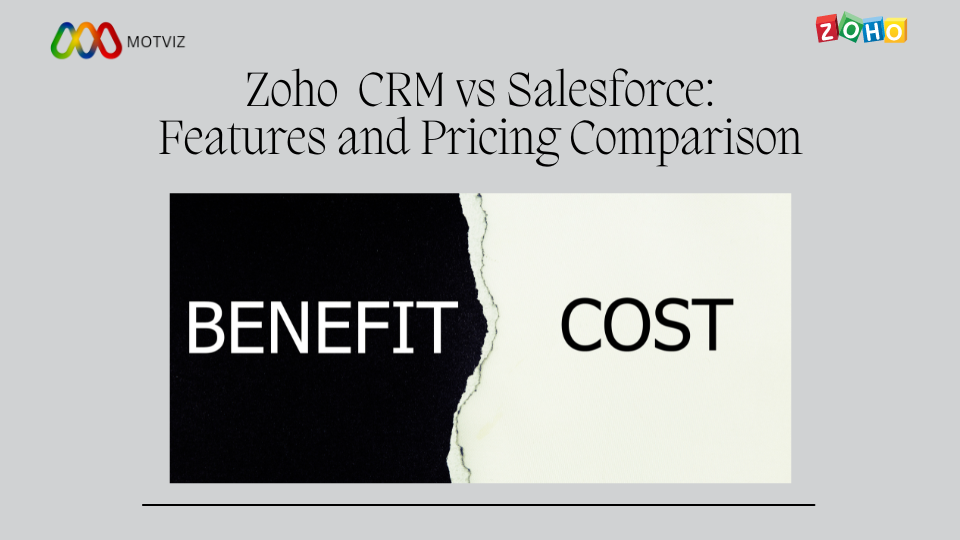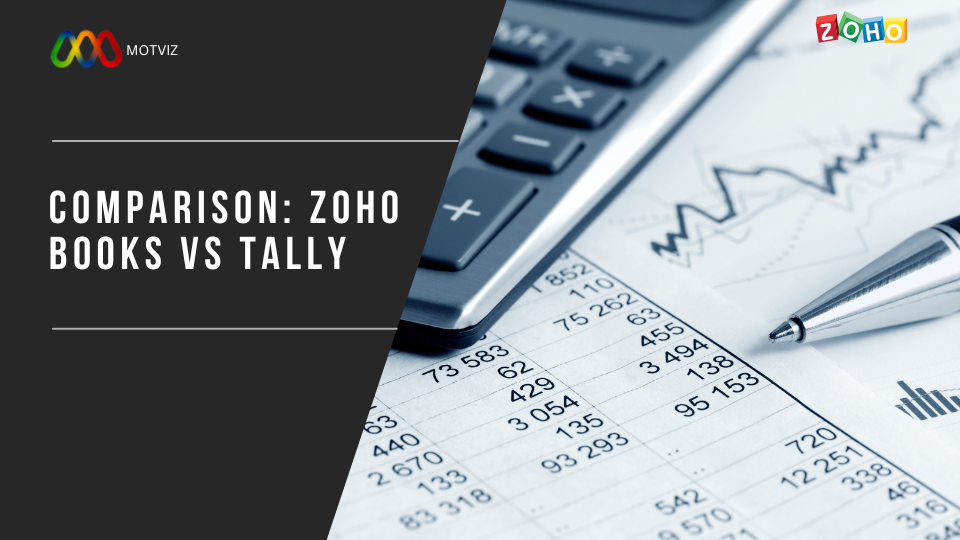
Zoho CRM vs Salesforce: Features & Pricing Comparison
Zoho CRM vs Salesforce
When it comes to customer relationship management (CRM) solutions, Zoho and Salesforce are two of the most prominent names in the industry. Both platforms offer a wide array of features designed to help businesses manage their sales, marketing, and customer support activities more effectively. In this detailed comparison, we’ll explore the key differences between Zoho vs Salesforce to help you make an informed decision for your business.
1. Features:
Zoho CRM: Zoho CRM provides a comprehensive suite of features including lead management, contact management, sales pipeline management, workflow automation, email marketing, reports and analytics, and integration with other Zoho applications such as Zoho Desk and Zoho Books.
Salesforce: Salesforce offers a robust set of features including lead and opportunity management, contact management, sales forecasting, workflow automation, marketing automation, customer service tools, and a vast ecosystem of third-party integrations through the Salesforce AppExchange marketplace.
2. Pricing:
Zoho CRM: Zoho CRM offers various pricing plans to suit businesses of all sizes, starting from a free plan for up to 3 users and scaling up to enterprise-level plans with advanced features and customization options.
Salesforce: Salesforce pricing tends to be higher compared to Zoho CRM, with multiple editions available including Essentials, Professional, Enterprise, and Unlimited editions, each offering different features and pricing tiers.
3. Ease of Use:
Zoho CRM: Zoho CRM is known for its user-friendly interface and intuitive design, making it easy for users to navigate and perform tasks without extensive training.
Salesforce: While Salesforce offers powerful features and customization options, it may have a steeper learning curve for new users due to its complex interface and extensive functionality.
4. Customization and Flexibility:
Zoho CRM: Zoho CRM provides a high level of customization and flexibility, allowing users to tailor the system to their specific business needs through custom fields, layouts, workflows, and automation rules.
Salesforce: Salesforce is highly customizable and offers extensive options for customization including custom objects, fields, workflows, approval processes, and custom applications built on the Salesforce Lightning Platform.
5. Integration and Ecosystem:
Zoho CRM: Zoho CRM seamlessly integrates with other Zoho applications such as Zoho Campaigns, Zoho Desk, Zoho Books, and Zoho Analytics. It also supports integration with third-party applications through APIs.
Salesforce: Salesforce boasts a vast ecosystem of third-party integrations through the Salesforce AppExchange marketplace, offering thousands of apps for various business needs including marketing, customer service, analytics, and more.
6. Support and Training:
Zoho CRM: Zoho provides comprehensive customer support through documentation, tutorials, forums, email support, and phone support for higher-tier plans.
Salesforce: Salesforce offers extensive support options including documentation, training resources, community forums, and access to Salesforce Success Plans for personalized support and guidance.
In conclusion, both Zoho CRM and Salesforce are powerful CRM solutions with their own strengths and weaknesses. Choosing between Zoho CRM vs Salesforce depends on your budget, business needs, ease of use, customization requirements, and integration preferences. Careful evaluation of the features and capabilities of Zoho CRM vs Salesforce will help you determine which platform best aligns with your business objectives and goals.




